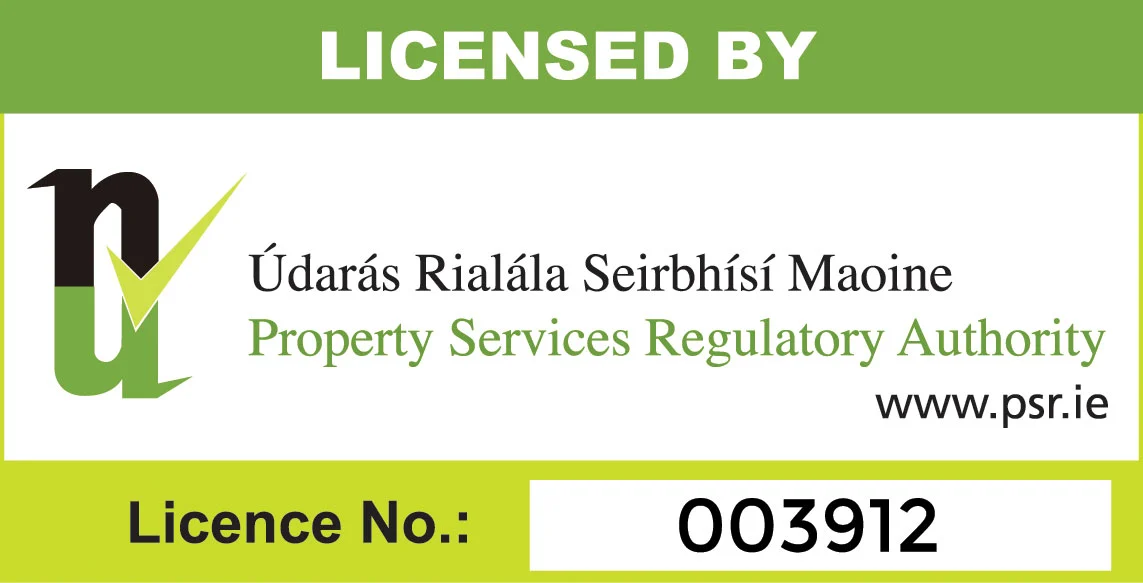Contents
The Hidden Costs of Buying a Property
Buying a property is an exciting and often nerve wracking process. It is the biggest financial decision that most people make in their lives but alas they only do it a handful of times in their life and so some of the hidden costs of buying can come as something of a surprise. In this article, we look to outline the full cost of buying a property as well as give some advice to ensure you get the very best value for your money.
Booking & Contract Deposits
In order to move to sale-agreed on a property, the selling estate agent will require you to pay a booking deposit. In a private treaty sale, this is refundable on demand up until contracts have been signed. On signing the contracts, the purchaser will be required to pay the contract deposit to their solicitor. The amount of the estate agent’s booking deposit is netted off against this amount at this point. Once this is paid and the contracts are signed, neither deposit is now refundable. These payments are then netted against the agreed purchase price to establish the balance due to the vendor on closing the sale. So the deposits are not additional costs but purchasers must have this cash on hand in order to progress the sale to sale-agreed and ultimately to closing. The amount of the booking deposit is somewhat arbitrary and varies widely from estate agent to agent. The contract deposit is typically 10% of the overall purchase price, less the booking deposit already paid to the estate agent.
Stamp Duty
When you buy a property, you are liable to pay stamp duty at the rate of 1% on the value of the property up to €1m and 2% on the balance over €1m. While 1% doesn’t sound like much, if you are buying a property worth several hundred thousand Euro, stamp duty can amount to a sizable bill. This is paid to the purchaser’s solicitor at the same time of paying the 10% contract deposit & the solicitor’s fees. The purchaser’s solicitor will not close the sale typically unless their fees have been paid.
Legal Fees
When purchasing a property in Ireland, you will need a conveyancing solicitor to represent you in the purchase. The solicitor will carry out the necessary due diligence in a process known as conveyancing and if all is in order, they will advise their client to sign the contracts. The purchaser’s solicitor will liaise with the vendor’s solicitor to ensure the legal transfer of title. Legal fees can vary considerably between solicitors so it is always worth shopping around. The Auctioneera Conveyancing Solicitor Marketplace enables property buyers (and sellers) to browse prices and reviews from property conveyancing solicitors. Property purchasers should budget circa €1500+VAT for this expense.
Valuation
If you are relying on a mortgage, your lender will need to value the property to confirm that they are satisfied with the amount that you are paying for it. As they will be taking the property as security against the loan, they need to be satisfied that you are paying reasonable market value for the property. This typically costs in the region of €150. Should the lender value the property at a lower amount than you have agreed to pay, they will now lend a percentage of this lower amount; typically 90% for first-time-buyers. If you wish to proceed with the sale, you will need to make up the shortfall with cash.
Surveyor
Before you sign the contract, you will likely want to have a qualified surveyor carry out a survey of the property. Prices vary but you should budget in the region of €500+VAT. You can browse reviews and pricing from surveyors covering the area in which you are buying at the Auctioneera Pre-Purchase Surveyor Marketplace.
Insurance
Before your lender will release the funds to your solicitor, they will require that you have sourced home insurance as well as mortgage protection (or life insurance). The former is to insure the asset that is securing their loan to you and the latter is protecting the lender in the event that the borrower were to die and as such not be in a position to repay the loan.
Banks will often bolt on these services and buyers will regularly just take the option presented by the bank. There are significant savings for those who shop around so make sure not to overpay for this insurance.
Conclusion
When buying a property, make sure to remember that the sale agreed price is not the final bill. Stamp duty, legal fees, surveyor costs, the bank valuation & insurance can add several thousand Euro to the tab. As with most services, the best value accrues to those who shop around so take your time to do your homework to ensure you only pay what you need to and no more than that.
Happy House Hunting!



